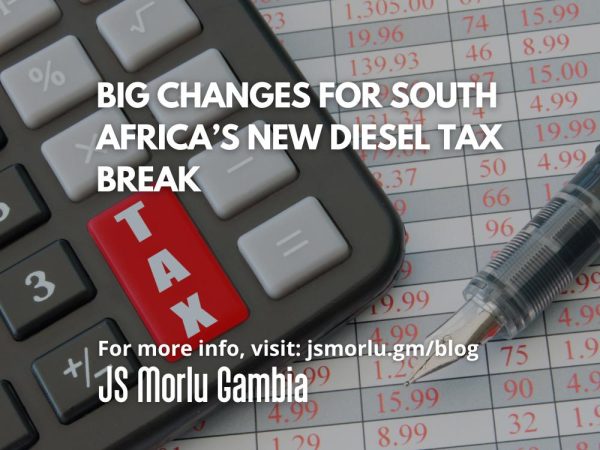
The South African Revenue Service (SARS) has gazetted the final provisions for South Africa’s new diesel refund system for foodstuff manufacturers.
The final document has introduced two big changes:
- The definition of ‘foodstuff’ has been altered to include beverages – previously, these manufacturers were excluded from benefitting from the tax break.
- SARS has also introduced additional requirements for companies to follow when applying, registering and claiming from the funds.
The diesel tax break was announced by finance minister Enoch Godongwana during his February budget speech, to help food manufacturers deal with the load shedding crisis. The refund applies to qualifying diesel purchases from 1 April 2023.
Given the ongoing energy crisis and the devastating impact of load shedding on businesses in South Africa, Godongwana said that exemptions offered to some manufacturers for the purchase of diesel would be extended to food manufacturers.
On 10 March 2023, SARS published the draft provisions to give effect to the proposal, together with the draft registration forms to be submitted in order to claim the refund, for public comment.
According to tax experts at PwC, the final provisions have come later than expected, with many anticipating the tax break to be finalised by mid-April. The scheme was only finalised on 14 July.
Regardless, the gazette has been welcomed, as it now provides clarity around who can take advantage of the break, while also grasping the full process of claiming.
Under the refund, qualifying manufacturers will be able to get 80% off the Road Accident Fund levy in the diesel they use in the process of manufacturing foodstuff.
The scheme will apply from 1 April 2023 up to and including 31 March 2025.
Definition change
The key change in the final provisions is that the definition of ‘foodstuffs’ has been revised by removing the exclusion of any beverages from Chapter 22.
However, PwC noted that the exclusion of products and preparations for making beverages classifiable as “sugary beverages” (Section A of Part 7 to Schedule No. 1) and goods of Chapters 5 (products of animal origin), 6 (live trees or plants), 13 (saps and extracts) and 14 (vegetable plaitings) still remain.
Additional requirements
PwC noted that the following additional requirements have been added to the registration and application process:
- Persons wishing to participate in the scheme must register as refund user.
- The premises in which manufacturing will take place must be duly registered with SARS Customs, which application must include a detailed plan of the premises.
- Application for registration is to be made on Form DA 185 with Form DA 185.4A3 as an annexure.
- A refund claim must be made on Form DA 66 and submitted electronically or to the SARS office nearest to the manufacturing premises.
These steps add to an already onerous process to take advantage of the tax break, including the requirements to keep track of a host of documentary evidence to support any claim or refund.
“The user must maintain complete records, books, accounts or other documents for a period of five years from the date of purchase, use, disposal or loss of such diesel or refund claim – whichever occurs last,” PwC said.
“Documents must be readily available for inspection by SARS.”
Original Source: Business Tech
